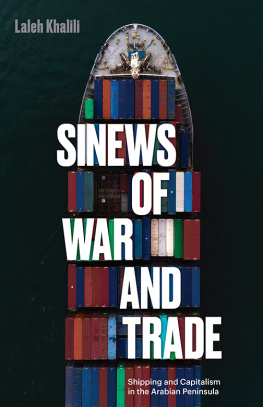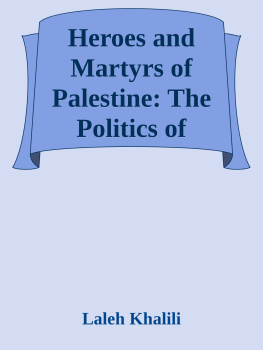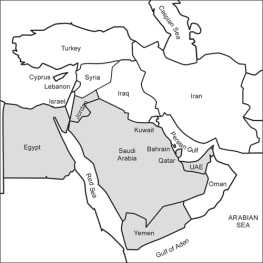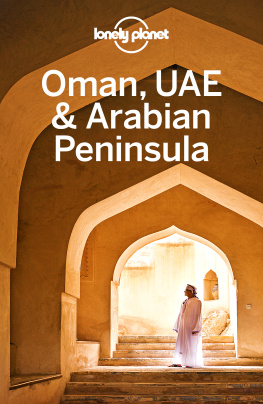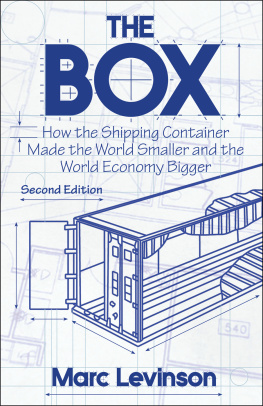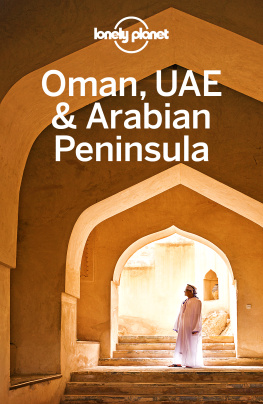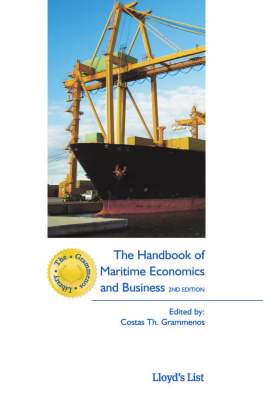Contents

Sinews of War and Trade
Sinews of War and Trade
Shipping and Capitalism
in the Arabian Peninsula
Laleh Khalili

First published by Verso 2020
Laleh Khalili 2020
All rights reserved
The moral rights of the author have been asserted
1 3 5 7 9 10 8 6 4 2
Verso
UK: 6 Meard Street, London W1F 0EG
US: 20 Jay Street, Suite 1010, Brooklyn, NY 11201
versobooks.com
Verso is the imprint of New Left Books
ISBN-13: 978-1-78663-481-8
ISBN-13: 978-1-78663-483-2 (UK EBK)
ISBN-13: 978-1-78663-484-9 (US EBK)
British Library Cataloguing in Publication Data
A catalogue record for this book is available from the British Library
Library of Congress Cataloging-in-Publication Data
Names: Khalili, Laleh, author.
Title: Sinews of war and trade : shipping and capitalism in the Arabian Peninsula / Laleh Khalili.
Description: London ; New York : Verso, 2020. | Includes bibliographical references and index. | Summary: On the map of global trade, China is now the factory of the world. A parade of ships full of raw commodities-iron ore, coal, oil-arrive in its ports, and fleets of container ships leave with manufactured goods in all directions. The oil that fuels Chinas manufacturing comes primarily from the Arabian peninsula. Much of the material shipped from China are transported through the ports of Arabian peninsula, Dubais Jabal Ali port foremost among them. Chinas maritime silk road flanks the peninsula on all sides. Sinews of War and Trade is the story of what the making of new ports and shipping infrastructure has meant not only for the Arabian peninsula itself, but for the region and the world beyond. The book is an account of how maritime transportation is not simply an enabling companion of trade, but central to the very fabric of global capitalism. The ports that serve maritime trade, logistics, and hydrocarbon transport create racialised hierarchies of labour, engineer the lived environment, aid the accumulation of capital regionally and globally, and carry forward colonial regimes of profit, law and administration--Provided by publisher.
Identifiers: LCCN 2019052101 (print) | LCCN 2019052102 (ebook) | ISBN 9781786634818 (hardback) | ISBN 9781786634849 (ebook)
Subjects: LCSH: ShippingArabian Peninsula. | Capitalism--Arabian Peninsula. | Arabian Peninsula--Commerce. | Arabian Peninsula--Economic conditions.
Classification: LCC HE559.A73 K43 2020 (print) | LCC HE559.A73 (ebook) | DDC 387.5/440953--dc23
LC record available at https://lccn.loc.gov/2019052101
LC ebook record available at https://lccn.loc.gov/2019052102
Typeset in Sabon LT by Hewer Text UK Ltd, Edinburgh
Printed and bound by CPI Group (UK) Ltd, Croydon CR0 4YY
For Clare Hemmings and Kris Muhlner
for the sustenance of love, pleasure and friendship
over the years
whatever is given
Can always be reimagined
Seamus Heaney, The Settle Bed
Where are your monuments, your battles, martyrs?
Where is your tribal memory? Sirs,
in that grey vault. The sea. The sea
has locked them up. The sea is History.
Derek Walcott, The Sea Is History
Contents

David Hansen-Miller planted the seeds of this project when I was flailing for something totally new, something really different, something less bloody and grim to research after my counterinsurgency project had wound down (and beaches and bars in Beirut wasnt cutting it as a long-term proposition). He also hooked me up with the lovely people at the International Transport Workers Federation, and especially Jeremy Anderson, without whom this project would not have gotten off the ground. Rafeef Ziadah, Charmaine Chua, Deb Cowen, and Katy Fox-Hodess have been fellow travellers from the first, their intellectual companionship all the more fabulous for all of them being such kickass women. Rafeef in particular has been a marvellous colleague and sounding board and friend throughout. I am grateful to Fahad Bishara, Rosie Bsheer, John Chalcraft, Neve Gordon, Toby Craig Jones, Johan Mathew, Catherine Rottenberg, and Al Withrow for reading the whole manuscript or substantial portions thereof and for giving exact and exacting, lucid, constructive feedback. John Gall made me re-write the introduction to appeal to an audience beyond academia. I am humbled by their patience, their generosity and their friendship.
In the glorious three years I set aside to be a student in a field I initially knew so little about, I visited a great many places and was aided by a great many people. Foremost among them were the officers and crew of the two CMA CGM container ships on which I travelled, Corte Real in February 2015 and Callisto in August 2016. The seafarers were, to a person, open, thoughtful, astute, patient, and immensely helpful in answering all my random questions and explaining the details of shipping work. Their insights about the ports we visited, about work aboard ships, about their lives and feelings at sea and at home, all flow through the veins of this book, even if I have not named them here, even in places where the subject or the time period seemingly doesnt have anything to do with them. I also want to thank Horatio Clare, whose Financial Times piece published in advance of his beautiful Down to the Sea in Ships, made me realise I could travel on freighters as a passenger.
On shore, numerous lovely people gave of their time for interviews or port tours or introduced me to people they knew far away from London. Some of these interviews and visits were foundational or transformative for my thinking and this project. I especially want to thank Jairus Banaji (for perspicacious conversations and very useful introductions in Mumbai); Fahad Bishara (for sharing his Arabic language sources and scanning books and chapters and sending them along with the kind of generosity with ones precious research materials I have rarely seen in the academy, and also for his stern corrections of immensely embarrassing errors in the first draft of the manuscript); Captain Roy Facey (who taught me many things about Aden and about the business of shipping); Lamya Harub (for introducing me to so many crucial people in Oman); Antony Joseph (of the Forward Seamens Union of India for an unforgettable introduction to and hospitality in Kerala); Simeon Kerr (for imparting his incisive insights in Dubai); Ryan Kim (for enlightening conversations about migrants rights in Manila); Bilal Malkawi (of ITF Middle East, for sharing his ideas and stories); Munzir Naqvi (for being such a great tour guide in Mumbai); Keith Nutall (then of Gulftainer, for a foundational visit to the port of Khor Fakkan); Vicente Rafael (for brilliant introductions in Manila); and Maria Rashid (for setting up such a productive interview for me in Karachi). Thank you to Sebastian Budgen for his terse emails, endless (and endlessly useful) references, and for wanting this book in the first place. Thanks are due to Eseld Imms for the amazing maps she has created for this book and for the website named after it. I am so impressed with the care and scrupulousness of my amazing copyeditor, Sarah Grey, and the rest of the wonderful Verso staff especially Duncan Ranslem for their efficiency and professionalism (and sense of humour).

